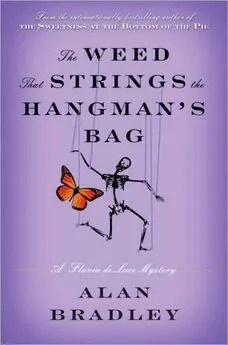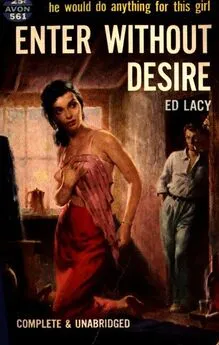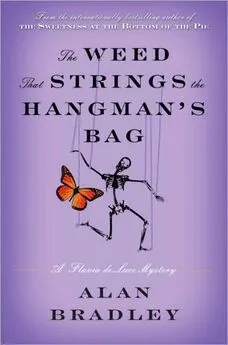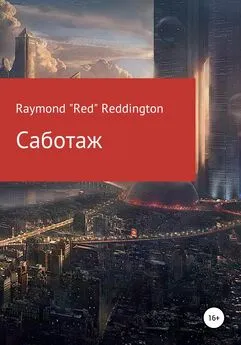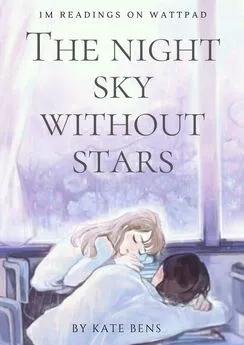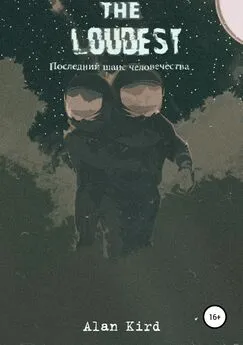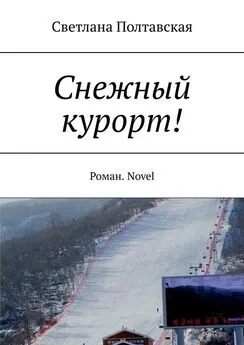Alan Bradley - A Red Herring Without Mustard: A Flavia de Luce Novel
- Название:A Red Herring Without Mustard: A Flavia de Luce Novel
- Автор:
- Жанр:
- Издательство:неизвестно
- Год:неизвестен
- ISBN:нет данных
- Рейтинг:
- Избранное:Добавить в избранное
-
Отзывы:
-
Ваша оценка:
Alan Bradley - A Red Herring Without Mustard: A Flavia de Luce Novel краткое содержание
A Red Herring Without Mustard: A Flavia de Luce Novel - читать онлайн бесплатно полную версию (весь текст целиком)
Интервал:
Закладка:
Rough brambles snatched at the caravan as it jolted and lurched from side to side in the lane, but the Gypsy seemed not to notice.
She was hunched over the reins, her watery eyes fixed firmly on some far-off horizon, as if only her shell were in this century, the rest of her escaped to a place far away in some dim and misty land.
The track broadened a little and a moment later we were moving slowly past a decrepit picket fence. Behind the fence were a tumbledown house that seemed to be hammered together from cast-off doors and battered shutters, and a sandy garden littered with trash which included a derelict cooker, a deep old-fashioned pram with two of its wheels missing, a number of fossilized motorcars, and, strewn everywhere, hordes of empty tins. Clustered here and there around the property stood sagging outbuildings—little more than makeshift lean-tos thrown together with rotten, mossy boards and a handful of nails.
Over it all, arising from a number of smoking rubbish heaps, hung a pall of gray acrid smoke which made the place seem like some hellish inferno from the plates of a Victorian illustrated Bible. Sitting in a washtub in the middle of the muddy yard was a small child, which jerked its thumb from its mouth the instant it saw us and broke into a loud and prolonged wailing.
Everything seemed to be coated with rust. Even the child’s red hair added to the impression that we had strayed into a strange, decaying land where oxidation was king.
Oxidation, I never tire of reminding myself, is what happens when oxygen attacks. It was nibbling away at my own skin at this very moment and at the skin of the Gypsy seated beside me, although it was easy to see that she was much further gone than I was.
From my own early chemical experiments in the laboratory at Buckshaw, I had verified that in some cases, such as when iron is combusted in an atmosphere of pure oxygen, oxidation is a wolf that tears hungrily at its food: so hungrily, in fact, that the iron bursts into flames. What we call fire is really no more than our old friend oxidation working at fever pitch.
But when oxidation nibbles more slowly—more delicately, like a tortoise—at the world around us, without a flame, we call it rust and we sometimes scarcely notice as it goes about its business consuming everything from hairpins to whole civilizations. I have sometimes thought that if we could stop oxidation we could stop time, and perhaps be able to—
My pleasant thoughts were interrupted by an ear-piercing shriek.
“Gypsy! Gypsy!”
A large, redheaded woman in a sweat-stained cotton housedress came windmilling out of the house and across the yard towards us. The sleeves of her cardigan were rolled up above her rawboned elbows as if for battle.
“Gypsy! Gypsy! Clear off!” she shouted, her face as red as her hair. “Tom, get out here! That Gypsy’s at the gate!”
Everyone in Bishop’s Lacey knew perfectly well that Tom Bull had cleared off ages ago and that he would not likely be back. The woman was bluffing.
“ ’Twas you as stole my baby, and don’t tell me you didn’t. I seen you hangin’ round here that day and I’ll stand up in any court o’ law and say so!”
The disappearance of the Bulls’ baby girl several years earlier had been a seven-day wonder, but the unsolved case had gradually crept to the back pages of the newspapers, then faded from memory.
I glanced at the Gypsy to see how she was bearing up under the ravings of her howling accuser. She sat motionless on the driving ledge, staring straight ahead, numb to the world. It was a response that seemed to spur the other woman to an even greater frenzy.
“Tom, get yourself out here … and bring the ax!” the woman screeched.
Until then, she had seemed hardly to notice me, but now my gaze had become suddenly entangled with hers, and the effect was dramatic.
“I know you!” she shouted. “You’re one of them de Luce girls from over at Buckshaw, ain’t you? I’d rec’nize them cold blue eyes anywhere.”
Cold blue eyes? Now, here was something worth thinking about. Although I had often been frozen in my tracks by Father’s icy stare, I had never for an instant thought of possessing such a deadly weapon myself.
I realized, of course, that we were in a dangerous situation, the sort of predicament that can turn nasty in a flash. It was obvious that the Gypsy woman was beyond counting upon. For all practical purposes I was on my own.
“I’m afraid you’re mistaken,” I said, lifting my chin and narrowing my eyes to achieve the greatest effect. “My name is Margaret Vole, and this is my great-aunt Gilda Dickinson. Perhaps you’ve seen her in the cinema? The Scarlet Cottage ? Queen of the Moon ? But of course, how foolish of me: You wouldn’t recognize her in this Gypsy costume, would you? Or in her heavy makeup? I’m sorry, I’m afraid I didn’t catch your name, Miss …”
“B-Bull,” the woman stammered, slightly taken aback. “ Mrs . Bull.”
She stared at us in utter astonishment, as if she couldn’t believe her eyes.
“Lovely to meet you, Mrs. Bull,” I said. “I wonder if you might offer us assistance? We’re thoroughly lost, you see. We were to have joined the cine crew hours ago at Malden Fenwick. We’re both of us quite hopeless when it comes to directions, aren’t we, Aunt Gilda?”
There was no response from the Gypsy.
The redheaded woman had already begun to poke damp strands of hair back into position.
“Damn fools, whoever you are,” she said, pointing. “There’s no turning round hereabouts. Lane’s too narrow. Straight on to Doddingsley you’ll have to go, then back by way of Tench.”
“Thanks awfully,” I said in my best village-twit voice, taking the reins from the Gypsy and giving them a flick.
“Ya!” I cried, and Gry began to move at once.
We had gone about a quarter of a mile when suddenly the Gypsy spoke.
“You lie like one of us,” she said.
It was hardly the sort of remark I should have expected. She must have seen the puzzled look on my face.
“You lie when you are attacked for nothing … for the color of your eyes.”
“Yes,” I said. “I suppose I do.” I had never really thought of it in this way.
“So,” she said, suddenly animated, as if the encounter with Mrs. Bull had warmed her blood, “you lie like us. You lie like a Gypsy.”
“Is that good?” I asked. “Or bad?”
Her answer was slow in coming.
“It means you will live a long life.”
The corner of her mouth twitched, as if a smile was about to escape, but she quickly suppressed it.
“In spite of the broken star on my Mount of Luna?” I couldn’t resist asking.
Her creaking laugh caught me by surprise.
“Mumbo jumbo. Fortune-teller’s rubbish. You weren’t taken in by it, were you?”
Her laughter set off another round of coughing, and I had to wait until she regained her breath.
“But … the woman on the mountain … the woman who wants to come home from the cold …”
“Look,” the Gypsy woman said wearily—as if she were unaccustomed to speaking—“your sisters put me up to it. They tipped me off about you and Harriet. Slipped me a couple of bob to scare the daylights out of you. No more to it than that.”
I felt my blood freeze. It was as though the faucet that feeds my brain had suddenly switched from hot to cold. I stared at her.
“Sorry if I hurt you,” she went on. “I never meant to …”
“It makes no difference,” I said with a mechanical shrug. But it did. My mind was reeling. “I’m sure I shall find a way of repaying them.”
“Maybe I can help,” she said. “Revenge is my specialty.”
Was she pulling my leg? Hadn’t the woman just admitted that she was a fraud? I looked deeply into her black eyes, searching for a sign.
“Don’t stare at me like that. It makes my blood itch. I said I was sorry, didn’t I? And I meant it.”
“Did you?” I asked rather haughtily.
“Spare us the pout. There’s enough lip in the world without you adding to it.”
She was right. In spite of my turning them down, the corners of my mouth flickered, then began to rise. I laughed and the Gypsy laughed with me.
“You put me in mind of that creature that was in the tent just before you. Regular thundercloud. Told her there was something buried in her past; told her it wanted digging out—wanted setting right. She went white as the garden gate.”
“Why, what did you see?” I asked.
“Money!” she said with a laughing snort. “Same as I always see. Couple of quid if I played my cards right.”
“And did you?”
“Pfah! A bloomin’ shilling she left me—not a penny more. Like I said, she went all goosey when I told her that. Scampered out of my pitch as if she’d sat on a thistle.”
We rode along in silence for a while, and I realized that we had almost reached the Palings.
To me, the Palings was like some lost and forgotten corner of Paradise. At the southeast angle of the Buckshaw estate, beneath a spreading tent of green and leafy branches, the river, as though twirling in its skirts, swept round to the west in a gentle bend, creating a quiet glade that was almost an island. Here, the east bank was somewhat higher than the west; the west bank more marshy than the east. If you knew precisely where to look among the trees, you could still spot the pretty arches of the little stone bridge, which dated from the time of the original Buckshaw, an Elizabethan manor house that had been put to the torch in the 1600s by irate villagers who made the wrong assumptions about our family’s religious allegiances.
I turned to the Gypsy, eager to share my love of the place, but she seemed to have fallen asleep. I watched her eyelids carefully to see if she was shamming, but there wasn’t so much as a flicker. Slumped against the frame of the caravan, she gave off the occasional wheeze, so that I knew she was still breathing.
In rather an odd way I found that I resented her easy slumber. I was simply itching to reel off for her, like a tour guide, some of the more fascinating bits of Buckshaw’s history. But for now, I should have to keep them to myself.
The Palings, as we called it, had been one of the haunts, in his latter days, of Nicodemus Flitch, a former tailor who, in the seventeenth century, had founded the Hobblers, a religious sect named for the peculiar shackled gait they adopted as they paced out their prayers. The Hobblers’ beliefs seemed to be based largely on such novel ideas as that heaven was handily located six miles above the earth’s surface, and that Nicodemus Flitch had been appointed personally by God as His mouthpiece and, as such, was licensed to curse souls to eternity, whenever he felt like it.
Daffy had told me that once, when Flitch was preaching at the Palings, he had called down God’s wrath upon the head of a heckler, who fell dead on the spot—and that if I didn’t fork over the tin of licorice allsorts that Aunt Felicity had sent me for my birthday, she would bring the same curse crashing down upon my head.
“And don’t think I can’t,” she had added ominously, tapping a forefinger on the book that she’d been reading. “The instructions are right here on this page.”
The heckler’s death was a coincidence, I had told her, and most likely due to a stroke or a heart attack. He would likely have died anyway, even if he’d decided to stay home in bed on that particular day.
“Don’t bet on it,” Daffy had grumbled.
In his later years Flitch, driven from London in disgrace, and steadily losing ground to the more exciting religious sects such as the Ranters, the Shakers, the Quakers, the Diggers, the Levellers, the Sliders, the Swadlers, the Tumblers, the Dunkers, the Tunkers, and yes, even the Incorrupticolians, had made his way to Bishop’s Lacey, where at this very bend in the river he had begun baptizing converts to his weird faith.
Читать дальшеИнтервал:
Закладка:

